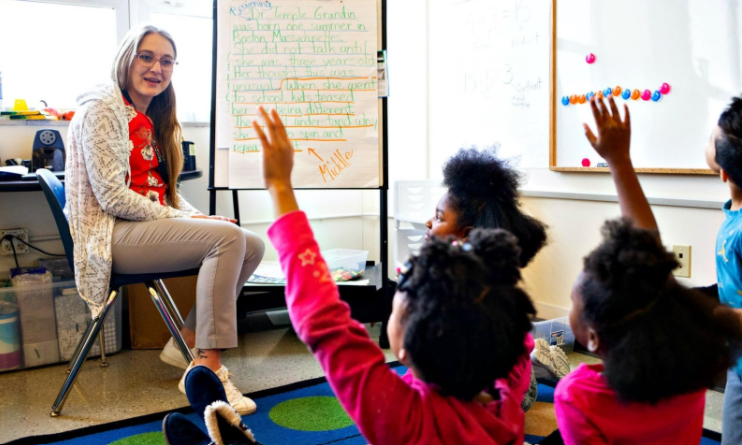The Black Lives Matter movement ignited a flame across the country that quickly evolved into an inferno of outcries and protests comparable to the civil rights movement of the 60s.
The movement not only calls for police reform, but also asks white Americans to be frank and take responsibility for the systematic racism that has lingered in our society for centuries.
The movement reminds us that Black children do not have the privilege of learning about racism because they grow up experiencing it.
Children are learning every day by assigning the meaning of words to the world around them, discovering how their body functions and learning how to write and speak. In these critical developmental years, it is vital that tough conversations about different societal issues are present.
This conversation begs certain questions: At what age is it acceptable to address complex societal issues with young children? Can an adolescent’s brain understand complex topics that many adults juggle with? Should educators address societal issues? How might these tough conversations integrate into the elementary curriculum?
According to The University of Rochester Medical Center, the human brain is not fully developed until the age of 25, but the ability to differentiate right from wrong has been proven to be prevalent in children at an early age.
In an interview with The Seattle Times, child psychiatrist Dr. William Womack said, “By about age 6, normal children are developing an internal conscience. They have a pretty good sense, inside of themselves, of what they’re not supposed to do; if they do something wrong, bells go off for them.”
In these critical early years of a child’s education, the ability to grasp and obtain information is stronger than ever.
“We teach children about love and what that means,” said UMKC psychology graduate Savannah Medley. “We teach children what hate is and why it’s not okay. Elementary children are like sponges. They soak up information, and they often ask the important questions adults are too afraid to ask. Children should learn all these negative things in our society to help create a better, more well-rounded society.”
Teachers have the rare opportunity to influence young children with a sense of respect for diversity and inclusion. Oftentimes, that means reading books that feature a diverse array of characters while building a strong sense of community in a potential classroom with different ethnicities or races.
These conversations are not easy. Placing the burden on teachers is a heavy responsibility, but early lessons that cover complex issues such as racism or homophobia are necessary for a society which is so clearly divided by prejudice and discrimination.
“Issues of racism, misogyny and homophobia should already be implemented into the curriculum for elementary, but so many of our adults are so protective of their children or are racist, misogynistic, and homophobic themselves,” said UMKC education major Rachael Watson. “I believe that these types of mindsets are learned. Teachers spend the same, if not more time with the students as their parents during the school week. It’s really hard to unlearn these mindsets in high school. So as teachers, we need to try to combat it at an earlier age, so they can form their own opinions.”
Young children are curious and candid. They are going to ask about differences in skin color. They are going to ask why a classmate has two fathers. It is the responsibility of adults to educate and correct hateful behavior. Hate is not something humans are born with; it breeds through ignorance and the unknown. Early education provides a gateway into a potential future where Black children could grow up learning about racism, rather than experiencing it.
zwzpgq@mail.umkc.edu








